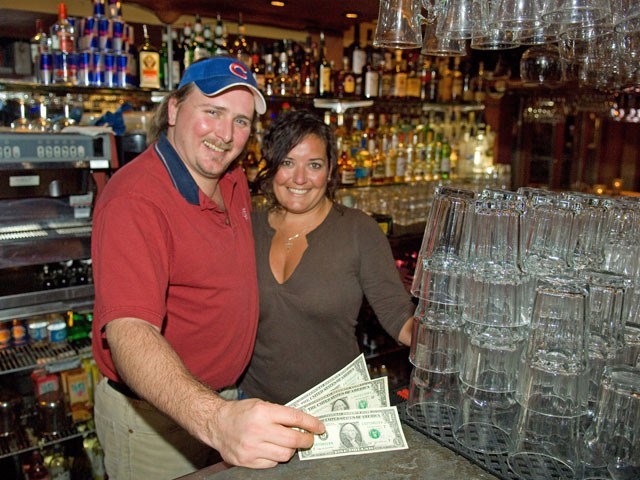With the exchange rate for the U.S. dollar hitting new territory this year, businesses around town are preparing for the unexpected this winter.
Most hope the loonie’s recent strength, sitting around $1.03 U.S. this week, will not affect the number of American tourists willing to make the trip north this season. However everyone recognizes that Whistler has suddenly gotten more expensive for Americans than ever before.
“We are seeing strong bookings this winter, but I would say that yes, we are certainly concerned about the U.S. market,” said Stewart Remple, senior vice president for marketing and sales at Whistler-Blackcomb.
“We can’t do anything about the currency. What we can do is make sure that we offer the best product, the best service, and when we have great snow on top of that, we will be successful,” he said.
Remple said the difference between today and five years ago, when the Canadian dollar was significantly weaker than the U.S. greenback, is that Whistler used to be on sale, and now it is at a normal price.
“Our policy at the moment is to accept U.S. dollars in cash at par, and we’ll continue to review that policy as we move forward. I think the important thing is with currencies now close to parity, we believe our product still offers great value compared to other resorts and the top U.S. resorts,” he said.
Breton Murphy from Tourism Whistler said it is too early to tell whether American tourist numbers will be down this year because of the exchange rate. He said bookings from the Eastern and Southern United States have grown significantly this year. However bookings from regional U.S. markets — including Washington and California — are trending behind last year’s numbers.
Murphy added that this figure might not be an accurate picture of the actual number of Americans who will come to Whistler this winter, since people are now booking their holidays closer to the actual date, through the Internet.
“I think it is really important to put into context when we look at the trend over the past several years, that the booking window of our visitors is shrinking, that time between when they make the booking and when they arrive,” he said.
Murphy added that Tourism Whistler is currently focusing on initiatives to give American guests more value in their stay here.
“What we’ve been hearing from our members is we want to just send a clear message, not only to the folks in the U.S., but from across Canada and overseas, that we want to be able to provide great service and customer value,” he said.
“When people arrive in the resort, we want them to feel that they are continuing to get a good value. And that the service they receive is really encouraging them to return,” he added.
Chris Quinlan, owner of Behind the Grind, said that he does not anticipate seeing a huge change in American tourist numbers this winter.
“It might affect our rubber tire traffic from Seattle, but I can’t see it being a major impact on our core visitors. They are going to want to come where the snow is. Last year was a great example of that. We had so much snow. If there is snow, that is where people go,” he said.
Joey Gibbons, owner of four bars in town, agreed that while the exchange rate could have an impact, snow was most more likely to be a determining factor.
“It’ll be interesting. I have always thought of Whistler as being sort of the USA’s Maui or like a Vegas, it is a destination spot. And even when our dollar was really weak, five or six years ago, everybody still went to those places because it was Maui, because it was Vegas. And they wanted to get that experience,” he said.
“As long as mother nature stays on our side, I think we are just going to plow through this whole thing,” he said.
Tourism Whistler and the Chamber of Commerce are still recommending that local businesses accept U.S. cash at par. However, chamber president Louise Lundy said that if the loonie continues to rise, the recommendation will be reviewed.




